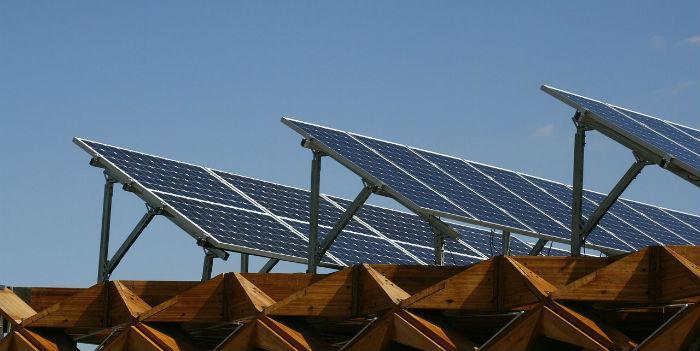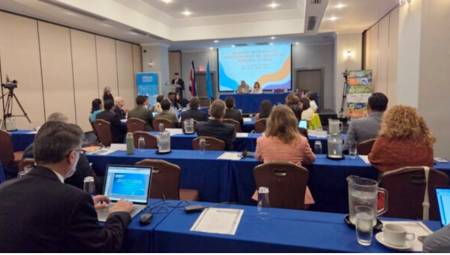 International. Schneider Electric revealed in a study that most organizations feel prepared for a decentralized, decarbonized and digitized future, but many are not taking the necessary steps to integrate and enhance/promote their energy and sustainability programs.
International. Schneider Electric revealed in a study that most organizations feel prepared for a decentralized, decarbonized and digitized future, but many are not taking the necessary steps to integrate and enhance/promote their energy and sustainability programs.
Through a statement, the company explained that this false sense of security can be attributed to the finding that most companies still adopt fairly conventional approaches to energy management and climate action. And innovation gaps are further complicated by limited coordination between purchasing, operations, and sustainability departments, as well as inefficient data collection and sharing.
81% of companies have made efficiency upgrades or plan to do so, but 30% or less are considering new energy opportunities such as microgrids and demand response
According to the survey of nearly 240 large corporations ($100 million in revenue or more) from around the world, 85 percent of respondents said their company will take steps over the next three years to keep its carbon reduction plans competitive with industry leaders. But projects that have been started or are under development lean heavily towards the conservation of energy, water and waste. Outside of renewables, few of the organizations represented are implementing more advanced strategies and technologies to manage energy and emissions.
Data management was cited as another obstacle to integrated energy and carbon management, with 45% of respondents stating that the organization's data is highly decentralized and handled at the local or regional level.
Key findings include:
Eighty-one percent of respondents have made energy efficiency upgrades or plan to do so within the next two years; 75% are working to reduce water consumption and waste.
Fifty-one percent have completed or plan to pursue renewable energy projects.
Only 30% have implemented or are actively planning to use combined energy storage, microgrids or heat and power, or some combination of these technologies.
Only 23% have demand response strategies or plan to do so in the short term.
"We are in the midst of a massive disruption in the way energy is consumed and produced," said Jean-Pascal Tricoire, president and CEO of Schneider Electric. "The near-universal focus on conservation is positive. However, being a smart consumer is only part of what it takes to survive and thrive. Businesses must prepare to be an active energy participant, put the pieces in place to produce energy, and interact with the grid, utilities, peers, and other new entrants. Those who do not act now will be left behind."
A primary barrier to progress may be internal alignment. Sixty-one percent of respondents said their organization's energy and sustainability decisions are not well coordinated among relevant teams and departments, especially for consumer goods and industrial enterprises. In addition, the same number of respondents said that lack of collaboration is a challenge.
Data management was cited as another obstacle to integrated energy and carbon management, with 45% of respondents stating that the organization's data is highly decentralized and handled at the local or regional level. And of the people who identified "insufficient tools/metrics for data sharing and project evaluation" as a challenge to work with across departments, 65% manage data at the local, regional or national, not global, level.
Cloud managed services leader iomart is an example of a company that is taking an integrated, data-driven approach. It works to coordinate energy efficiency and environmental management across the network of data centres it owns and operates in the UK.
"Having actionable data and intelligence is essential," said Neil Johnston, the group's director of technical operations for iomart. "But what happens once the information is available is equally important. Our procurement, energy and sustainability teams compare data and develop shared strategies to manage consumption and emissions, and reduce costs. That collaboration has generated significant savings for the business, and has helped us achieve ISO 50001 accreditation and meet Carbon Reduction Commitment requirements."
Research also points to progress in several areas
More than 50% of the companies represented have initiated renewable energy projects or plan to do so in the next two years, with healthcare (64%) and consumer goods (58%) leading the way. In addition, C-suite and corporate functions have a high degree of participation in these and other sustainability-focused programs. 74% said C-Suite members review or approve renewable energy and sustainability initiatives, for example, indicating that this work is considered a strategic priority.
And while return on investment (ROI) is the obvious benchmark for energy and sustainability initiatives, companies are starting to take a broader and more comprehensive view of investments. For example, more than half of respondents said that environmental impact is taken into account in the assessment process. Organizational risk (39%)) is another important consideration.
The study was conducted by GreenBiz Research to identify how companies develop energy and environmental strategies, collect and share data, and coordinate across departments, a practice known as Active Energy Management. Participants included professionals responsible for energy management and sustainability, from C-suite and board members to individual taxpayers. The companies surveyed represent 11 primary segments, including consumer goods, energy/utilities, finance, industry, healthcare and technology. The results of any sample are subject to variation.
The full report can be viewed by clicking here.
Source: Schneider Electric.














